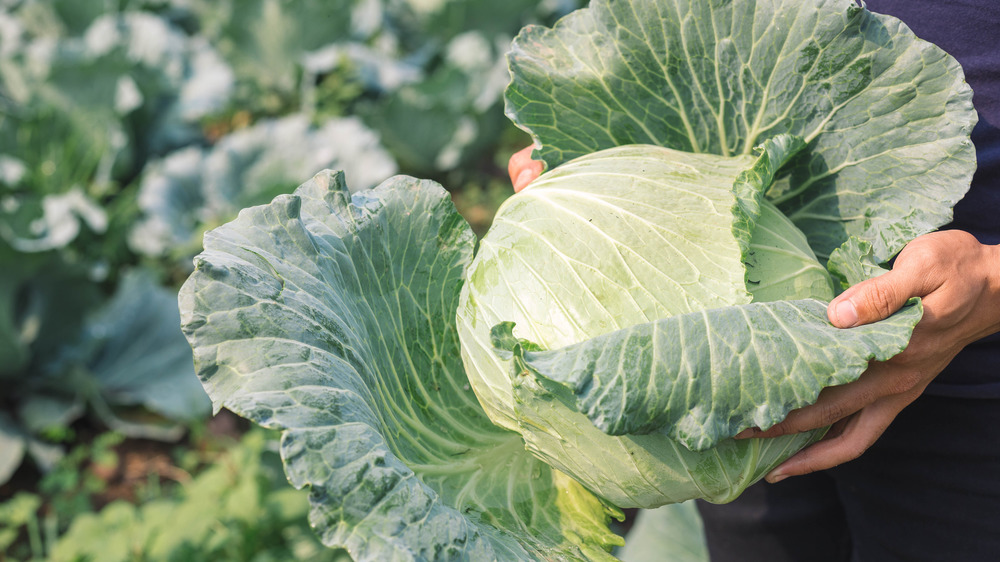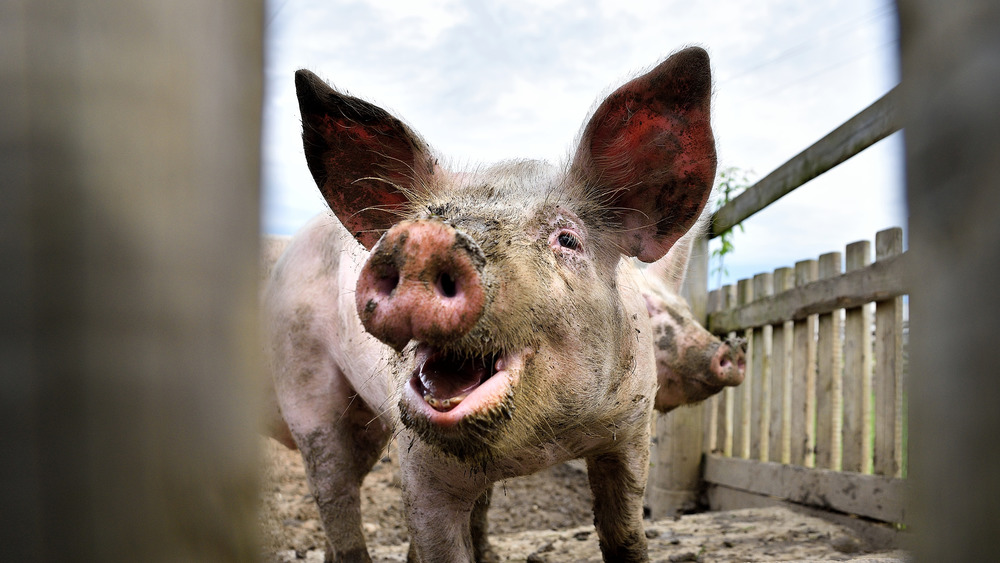Don't Believe This Myth About Cabbage
The Times of India released a sensational article in 2017 entitled, "Beware! These vegetables can cause deadly brain worms!" The article claimed that — according to some unidentified researchers — certain raw vegetables were particularly susceptible to tapeworm infestations, cabbage among them. The article said that the worm would creep into the cabbage leaf layers and lay its eggs, unseen by the naked eye and impervious to high cooking temperatures. If infected cabbage is digested, the article claimed that tapeworm "spores" can make their way through the bloodstream to the brain. Once there, it reported the parasitic infection could cause a headache, brain swelling, paralysis, seizures, and even death.
The only way to ensure your cabbage isn't riddled with the worms? The article recommended soaking cabbage leaves in potassium permanganate, a substance used as an antiseptic for dermatological illnesses, as well as for filtering drinking water (via Nursing Times and Livestrong). But before you go throwing out all your cabbage and wondering if that sauerkraut you enjoyed on your hot dog last night gave you a brain worm, hold up. Thankfully, more experts have come into the discussion to assure consumers that eating cabbage is not going to lead to deadly brain tapeworms.
The true culprit isn't cabbage at all
In a Tribune India article, experts from the Dayanand Medical College and Hospital clarified that deadly brain tapeworms that were thought to be caused by consuming cabbage were not connected to cabbage at all. Instead, the true culprits were "poor sanitation and eating pork which is not inspected." Professor Gagandeep Singh explained that in certain cases, those who were already infected with tapeworms would not dispose of their human waste appropriately and then pigs would eat the waste and become infected. Then, when the pigs were slaughtered and consumed, new individuals would be infected, creating a vicious cycle of "brain worms."
However, even for those who did end up with parasitic infection, the results were not as dramatic as the original article made it out to be. Instead, Singh noted that the infections often resulted in epilepsy that was controllable via medication, and in the rarest of cases, surgery was necessary. But, Dr. Rajveer Singh, an assistant professor, still cautioned consumers to always wash their raw vegetables before consuming them, just to be safe. And when it comes to your medical care or any worries over brain worms, he has some straightforward advice. He simply stated, "One should not visit quacks."

